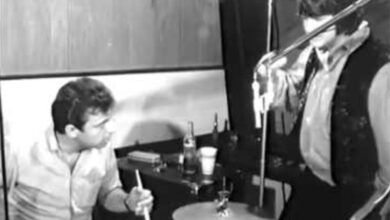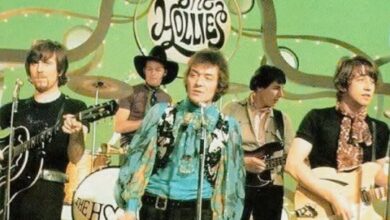Jim Croce’s ‘I’ll Have to Say I Love You in a Song’ Becomes a Posthumous Hit in 1974
In March 1974, Jim Croce’s heartfelt ballad I’ll Have to Say I Love You in a Song was released, capturing the essence of unspoken emotions and resonating deeply with listeners. This release was particularly poignant, as it came six months after Croce’s untimely death in a plane crash in September 1973. The song quickly climbed the charts, peaking at number nine on the Billboard Hot 100 and securing the top spot on the Billboard Adult Contemporary chart.
Born on January 10, 1943, in South Philadelphia, Pennsylvania, Jim Croce developed a passion for music early in life. He began playing the accordion at age five and later picked up the guitar during his college years at Villanova University. Croce’s music seamlessly blended folk, rock, and country elements, characterized by his warm vocals and storytelling prowess. Before his mainstream success, he worked various jobs, including teaching and truck driving, experiences that often inspired his songwriting.
The inspiration for I’ll Have to Say I Love You in a Song stemmed from a personal moment between Croce and his wife, Ingrid. After a disagreement, instead of continuing the argument, Croce retreated to their kitchen and penned the song as an apology. Ingrid later recalled how, rather than verbalizing his feelings, Croce would often let his music speak for him. This intimate and personal backstory gives the song an even deeper emotional weight.
Recorded in 1973 at The Hit Factory in New York City, the track was produced by Terry Cashman and Tommy West. The arrangement features Croce’s signature acoustic guitar complemented by a string section that adds depth to the melody. Notably, the song includes gentle backing vocals and a counterpoint melody during the instrumental conclusion, elements that enhance its emotional resonance.
Upon release, I’ll Have to Say I Love You in a Song was met with widespread acclaim. Critics praised its tender sincerity, and listeners connected with its theme of expressing love when words fail. It became one of Croce’s most enduring ballads, standing alongside his other classics like Time in a Bottle and Operator (That’s Not the Way It Feels). Despite being released after his passing, the song gave fans one last message from Croce, making it an especially bittersweet hit.
Culturally, I’ll Have to Say I Love You in a Song reinforced Croce’s reputation as a master of storytelling through music. It stood out during an era dominated by larger-than-life rock bands and elaborate productions, proving that simple, heartfelt songwriting could still capture the public’s imagination. The song became a staple of romantic playlists and soundtracks, often used in films and television to underscore moments of longing and reconciliation.
For Jim Croce, this song was another testament to his ability to create music that felt personal and universal at the same time. Though he never got to witness the success of the track, it contributed to a resurgence of interest in his work following his passing. His widow, Ingrid, played a key role in preserving and promoting his legacy, ensuring that his music continued to reach new audiences.
Over the years, I’ll Have to Say I Love You in a Song has been covered by various artists, including Jerry Reed and Johnny Rivers, each bringing their own interpretation to its gentle melody. These renditions kept the song alive in different genres, introducing it to listeners who may not have been familiar with Croce’s original version.
At the time of the song’s release, Croce’s music was undergoing a revival. His posthumous album I Got a Name had already been warmly received, and Time in a Bottle had reached number one on the charts. This renewed attention to his work only amplified the emotional impact of I’ll Have to Say I Love You in a Song, cementing its place as one of his most cherished compositions.
Decades later, the song continues to resonate, frequently played on classic rock and soft rock radio stations. Its themes of love, regret, and the power of music to express what words cannot make it timeless. Even in 2025, fans still find comfort in Croce’s gentle voice and poetic storytelling, a reminder of the enduring power of a song written straight from the heart.





